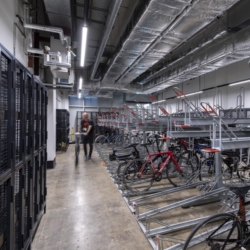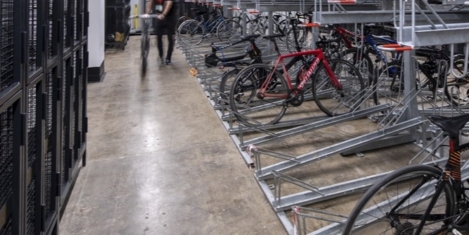August 6, 2024
Capital One Office upgrades classic Zumtobel luminaire
 Twenty years on financial services giant Capital One were still happy with the look and feel of their classic TECTON lighting system, but in search of improved efficiency, once again turned to Zumtobel for a fresh solution. Trent House, Nottingham, is financial services’ giant Capital One’s European HQ. It recently underwent a major remodelling project to create a stimulating and responsive working environment. In the dynamic landscape of corporate transformations, Capital One took a strategic leap to refurbish its 1st and 2nd floors, embarking on a journey towards modernisation and efficiency. Partnering with Zumtobel, a trusted name in lighting solutions, the project aimed to breathe new life into its 20-year-old Zumtobel TECTON System. (more…)
Twenty years on financial services giant Capital One were still happy with the look and feel of their classic TECTON lighting system, but in search of improved efficiency, once again turned to Zumtobel for a fresh solution. Trent House, Nottingham, is financial services’ giant Capital One’s European HQ. It recently underwent a major remodelling project to create a stimulating and responsive working environment. In the dynamic landscape of corporate transformations, Capital One took a strategic leap to refurbish its 1st and 2nd floors, embarking on a journey towards modernisation and efficiency. Partnering with Zumtobel, a trusted name in lighting solutions, the project aimed to breathe new life into its 20-year-old Zumtobel TECTON System. (more…)


































July 30, 2024
Challenging the concept of work-life balance as we know it
by Beth Stallwood • Comment, Wellbeing